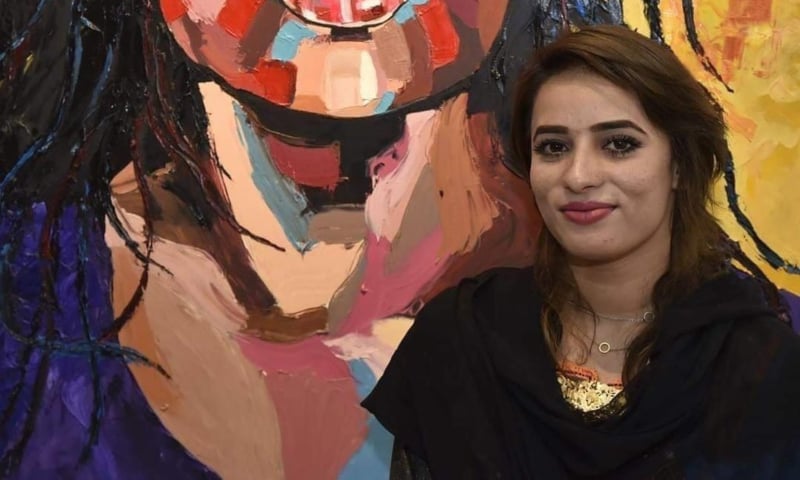Shaheena Shaheen, hosted a talk show on state-owned Pakistan Television and was the Editor of Balochi magazine Dazgohar. She was shot dead in her home on 5 September 2020. Shaheena was a vocal supporter of gender equality and the empowerment of women in Balochistan and had been getting death threats and warnings from Baloch militants to leave her job. However, she did not submit to the threats.
Shaheena Shaheen was shot dead in her home in Balochistan by her husband who reportedly wanted her to stop her activism and disapproved of the public profile her work brought her. Shaheena’s family lodged a first information report (FIR) against her husband, whom she had married five months previously. It is believed her husband killed Shaheena because she was becoming famous in her area, a conservative part of Balochistan.
The killing of Shaheena Shaheen reflects the double victimisation faced by women human rights defenders who face stigmatisation and violence both in the community and often within their own families. Women human rights defenders are frequently targeted because of who they are as well as what they do. In a report compiled in 2018 by the Aurat Foundation( a women’s rights NGO), it was estimated that 50 people, including 30 women, had been killed in the name of honour in Balochistan. The victims were mostly killed by close relatives, including husbands, brothers and other relatives in the name of so-called honour and small family feuds.
Pakistan is one of the world’s most dangerous countries for press freedom and journalists, with it ranking at 142 out of 180 countries in RSF’s 2019 World Press Freedom Index. But journalists in Pakistan are targeted by state as well as non-state actors. In April 2020 the body of exiled journalist and human rights defender, Sajid Hussain, who had been granted asylum in Sweden was found in a lake near Uppsala. Initial reports suggested suicide but his family believe he was killed by Pakistani agents because of his human rights work.
On 5 December 2020, Karima Baloch, a cousin of Sajid’s and like him an exiled journalist, who had been granted asylum in Canada because of threats to her life, went out for a walk and didnt come back. Her body was later found in a body of water near Lake Ontario. As in the case of Sajid this was a supposed suicide but once again family and colleagues believe she was targeted because of her human rights work.
There is a consistent pattern of violence aginst journalists and human rights defenders in Pakistan. In July 2021 the Metropolitan Police’s Counter Terrorism Unit charged a man named Mohammad Gohir Khan with plotting to assassinate prominent Pakistani blogger Waqas Ahmad Goraya. In addition, intelligence services in multiple countries have reported credible death threats against exiled Pakistanis, who were critical of that country’s military, dating back to 2018. These include prominent figures such as scholar Ayesha Siddiqa and journalist Taha Siddiqui.
According to the Committee to Protect Journalists, more than 60 journalists have been killed in Pakistan in direct relation to their work.
But journalists are targeted by state as well

